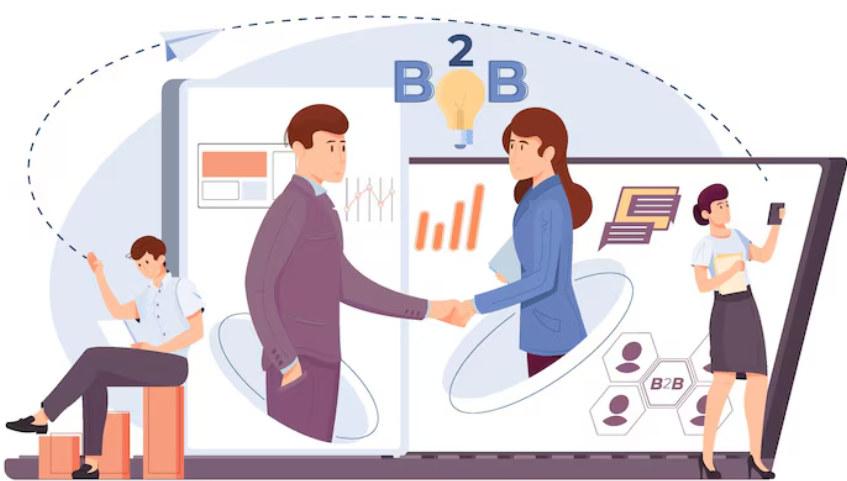

The world of eCommerce isn’t just about individual shoppers anymore. Business-to-business (B2B) eCommerce is booming, with more companies choosing to buy wholesale products online rather than through traditional catalogs or phone orders. Wholesale buyers expect the same convenience, speed, and user-friendly experience as retail customers.
This is where Shopify B2B comes in. Instead of juggling multiple systems for retail and wholesale, Shopify allows you to manage both in one place. Whether you sell direct-to-consumer (D2C), wholesale, or both, Shopify provides the tools you need to scale. In this guide, we’ll explore what Shopify B2B is, its features, benefits, setup process, and how to make the most of it.
Shopify B2B is Shopify’s integrated wholesale solution designed to help merchants sell directly to business buyers. Traditionally, running a wholesale operation meant building a separate store or relying on clunky third-party apps. Shopify B2B changes that by giving you a set of wholesale tools directly inside your existing Shopify store.
The key difference between Shopify B2C and Shopify B2B lies in the buying experience. While B2C focuses on attracting individual shoppers with retail pricing, B2B prioritizes bulk ordering, flexible payment terms, and personalized pricing for wholesale customers. With Shopify B2B, you can seamlessly serve both audiences without switching platforms.
In short, Shopify B2B makes wholesale simple, streamlined, and scalable—right inside Shopify Admin.

Shopify B2B offers a rich set of tools tailored specifically for wholesale. Let’s look at the most important ones.
Instead of treating wholesale buyers like regular customers, Shopify allows you to create company profiles. Each profile can include multiple buyers, custom settings, and unique rules. This makes it easier to manage wholesale accounts at a company level, rather than individual accounts.
B2B pricing is rarely one-size-fits-all. Shopify lets you create price lists to assign custom or tiered pricing to specific companies. For example:
This flexibility makes Shopify ideal for managing long-term wholesale relationships.
Wholesale buyers often expect to pay later. Shopify B2B supports net payment terms like Net 30, Net 45, or Net 60. This allows you to extend credit to reliable customers while keeping everything tracked in your system.
Shopify B2B comes with a customized checkout experience designed for wholesale orders. Instead of regular retail checkout, business buyers see their negotiated pricing, payment terms, and shipping preferences.
If you’re managing multiple warehouses or fulfillment centers, Shopify B2B allows you to assign inventory across locations. This ensures wholesale orders are fulfilled from the right stock levels.
Shopify B2B integrates with ERP, CRM, and accounting systems. This means you can connect tools like NetSuite, Brightpearl, or QuickBooks to automate backend processes.
Why should a wholesale merchant consider Shopify B2B over other platforms? Here are the main benefits:
For many businesses, Shopify B2B strikes the perfect balance between simplicity and customization.
Setting up Shopify B2B doesn’t have to be complicated. Here’s how to get started:
Make sure your Shopify plan supports B2B (Shopify Plus offers the most advanced features). Log into your Admin and access the B2B settings.
Always test the wholesale flow by placing a sample order as a B2B buyer. This ensures everything—from pricing to checkout—works as intended.
Once your B2B store is live, you’ll want to make it as effective as possible. Here are some best practices:
Shopify B2B is powerful, but it’s not perfect. Some challenges include:
Despite these limitations, Shopify B2B is still one of the most accessible and flexible wholesale solutions available today.
How does Shopify B2B compare to alternatives like Magento or standalone wholesale systems?
For most small-to-medium merchants, Shopify B2B provides the best combination of affordability, usability, and scalability.
The future of Shopify B2B is bright. As wholesale buyers increasingly demand self-service portals, Shopify is expanding its tools to make wholesale as smooth as retail shopping. Expect to see:
In other words, Shopify is evolving to become a true one-stop platform for both retail and wholesale eCommerce.
Wholesale is no longer about phone calls, spreadsheets, and faxed purchase orders. Today’s B2B buyers expect the same seamless online experience as everyday shoppers. With Shopify B2B, you can deliver exactly that—without managing multiple systems.
From company profiles and custom price lists to net payment terms and wholesale checkout, Shopify gives you everything you need to build a professional, scalable wholesale channel. It’s a solution that saves time, builds trust, and helps you grow faster.
Whether you’re just starting out in wholesale or upgrading from a traditional system, Shopify B2B provides the flexibility to handle both retail and wholesale in one place. By embracing this all-in-one solution, you’ll position your business to succeed in the rapidly growing world of B2B eCommerce.


Simply adding a Q&A section is not enough. Its placement on the product page determines whether it actively supports the buying journey or quietly goes unnoticed. Each placement option serves a distinct purpose depending on product complexity, user intent, and page layout. Below are the most effective placement strategies in product page.
This guide explores best practices for integrating Q&A with review and rating systems to create a seamless, confidence-driven shopping experience that supports conversions and long-term customer trust.
We’ll explore how to add ChatGPT to your Shopify store, from use cases and setup approaches to best practices for long-term success.